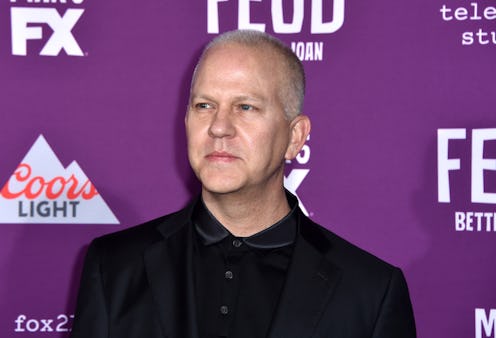
On Sunday, TV mastermind Ryan Murphy will unveil his latest anthology series, Feud, an eight-part project set to re-explore the legendary behind-the-scenes drama between Bette Davis and Joan Crawford during the production of their 1962 film What Ever Happened To Baby Jane? On the surface, it may seem catty, but it was crafted with a much deeper mission: Murphy created Feud to tell female stories.
In an interview with Entertainment Weekly, he said the show is "about two women who have reached this point in their lives where they’re just sort of at the height of their powers, and yet the industry has said, ‘There’s no roles available for you anymore." He continued,
"I wanted to make the show because I wanted to tell a story about modern issues that are facing women today, and, oddly enough, nothing’s changed. You’d think things have progressed. They have not. So really it’s a show about sexism and misogyny, and why aren’t women being paid as much as men, and why in our culture we have ‘It’ girls and not ‘It’ boys and why do women feel there’s only room for there to be one successful woman at a time … All of these things are very interwoven in a very juicy, fun, but ultimately, I feel, a tragedy.”
A petty backstage battle may seem like an unlikely story to do that with, but Murphy has made it his goal to promote inclusivity in Hollywood. His projects often put complicated female stories at the forefront, and roles in shows like American Horror Story have helped bolster the careers of women like the incomparably talented Sarah Paulson, Jessica Lange, and Kathy Bates.
His pledge extends behind scenes, too. While accepting the Distinguished Artisan Award at the Make-Up Artists & Hair Stylists Guild Awards earlier this month, he called the industry average statistic for women in the entertainment business "deplorable," and said that his company has a new rule: 50 percent of all department heads and their crews must be women, people of color, and members of the gay, lesbian, and trans community.
While it will take time, work, and a lot more support for Hollywood to get where it needs to be in terms of celebrating diversity, it's encouraging to know that Murphy is taking an active role in helping it get there, and that Feud won't be falling back on any tired, outdated tropes.